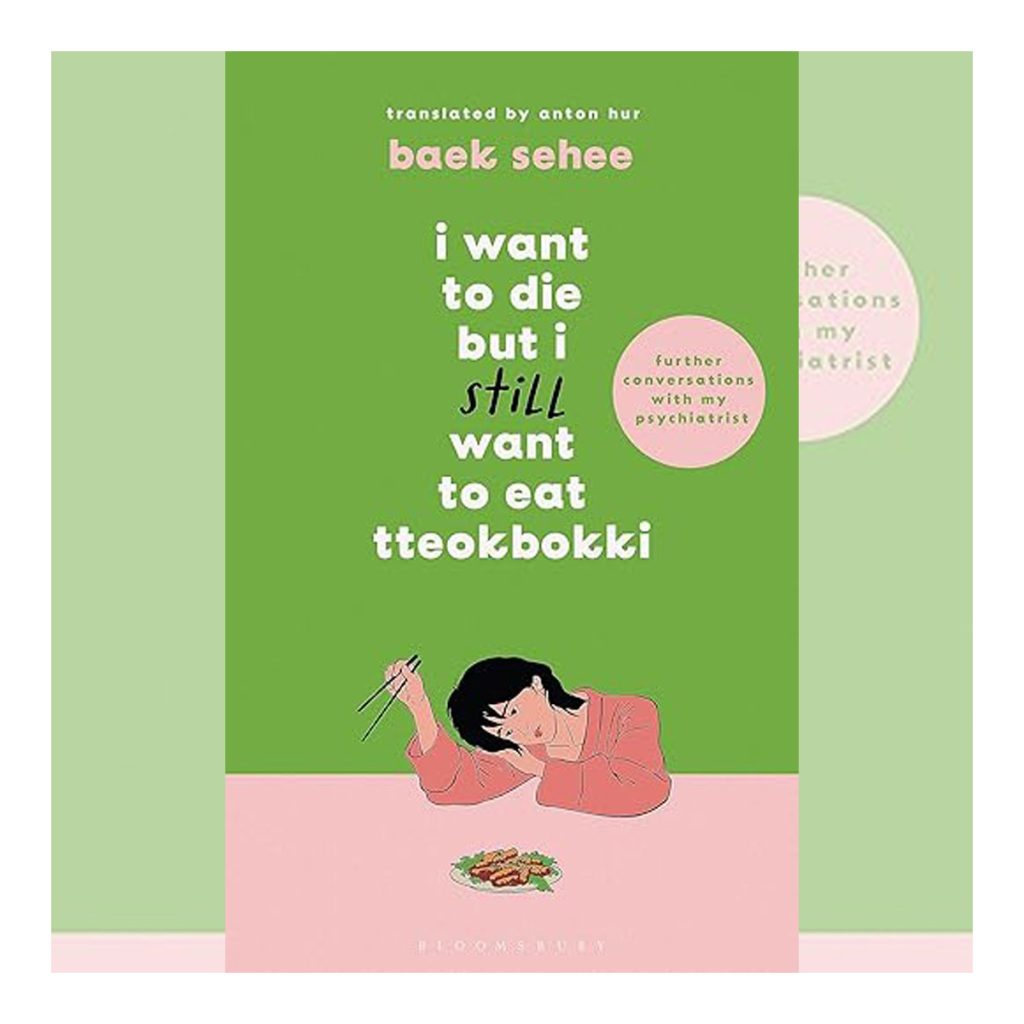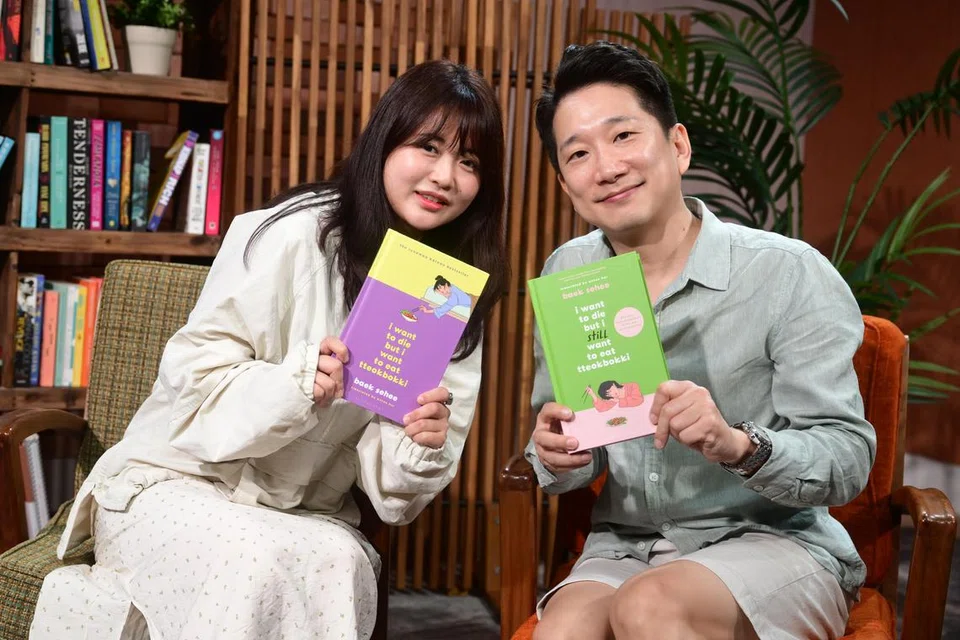In a tragic and deeply impactful event, the world lost one of its most influential voices in mental health advocacy and literary expression. Renowned Korean author Baek Se-hee passed away at the age of 35 on October 16, 2025, leaving behind a legacy that will continue to shape conversations around depression, vulnerability, and the power of storytelling.
Baek Se-hee, best known for her groundbreaking memoir I Want to Die but I Want to Eat Tteokbokki, became a symbol of hope and resilience for millions globally. Her passing has sparked an outpouring of grief and admiration from readers, fellow authors, and mental health professionals alike.
The Life and Work of Baek Se-hee
Born in 1990 in Goyang, South Korea, Baek Se-hee grew up in a society where academic pressure was intense and mental health discussions were often taboo. Despite these challenges, she pursued a degree in Korean literature from Dongguk University, graduating in 2014. After a brief stint as a freelance editor, she turned her attention to writing, eventually publishing her debut memoir in 2018.
I Want to Die but I Want to Eat Tteokbokki was more than just a personal account—it was a raw, unfiltered look into the complexities of clinical depression. The book’s most iconic line, “The human heart, even when it wants to die, quite often wants at the same time to eat some tteokbokki, too,” captured the paradox of despair and desire that many people face. This line resonated with readers worldwide, making the memoir a cultural phenomenon.
By mid-2025, the English edition of the book had sold over 327,450 copies across 25 territories, with global sales surpassing one million. Translations in Germany, Spain, Italy, Belgium, and Poland further cemented its status as a cross-cultural touchstone.
Final Days and Organ Donation
Baek Se-hee’s final days were marked by both personal tragedy and selfless generosity. She was admitted to Goyang Hospital earlier in the week for unspecified reasons. While the cause of her death was not disclosed, her family and medical team kept details private.
However, her decision to donate her organs made headlines. According to the Korea Organ Donation Agency (KODA), Baek’s heart, lungs, liver, and kidneys were retrieved and transplanted into five patients across Seoul. Each recipient’s family issued a heartfelt thank-you note, highlighting how her act of generosity transformed personal loss into life-saving opportunities.
This story quickly became a focal point in South Korean media, prompting the Ministry of Health and Welfare to emphasize the importance of organ donation. “Baek Se-hee’s selfless act underscores the collective responsibility we all share,” the ministry stated, noting that national organ-donation rates have seen only modest growth in recent years.
Impact on Mental Health Discourse
Baek Se-hee’s passing has reignited critical conversations about mental health, particularly in South Korea, where suicide rates have long been among the highest in the OECD. Within 24 hours of the news, social media platforms saw hashtags like #BaekSeheeLegacy and #TteokbokkiTalk trending globally.
Mental health NGOs reported a surge in hotline calls, with many citing the memoir as a bridge for younger generations who previously felt isolated. The Korean Association for Suicide Prevention announced plans to use future royalties from Baek’s upcoming project, Depression and Tteokbokki: A Companion Guide, to expand outreach programs.
Dr. Min-ji Lee, director of the association, said, “Baek turned her personal pain into a public good; we intend to honor that by turning her words into resources for those still struggling.”
Literary peers also weighed in. Han Ji-woo, a fellow memoirist, called her “the voice that made silence speak.” Bloomsbury Publishing’s senior editor, Caroline Hughes, noted that sales of the English edition spiked by 25% after the organ donation announcement—a bittersweet reminder of how fame can evolve into advocacy.
Future Publications and Enduring Legacy
Despite her passing, Baek Se-hee’s literary legacy continues. Munhakdongne Publishing Corporation confirmed that the posthumous release schedule will remain intact. In addition to the forthcoming companion guide, a second edition of her 2019 sequel, I Want to Die but I Still Want to Eat Tteokbokki, will include a new foreword by psychiatrist Dr. Sun-hee Park, who worked with Baek during the original manuscript’s development.
Funeral arrangements were held at Sinchon Funeral Hall in Seoul, with burial slated for October 18 at Goyang City Cemetery. The ceremony, private and Buddhist-influenced, drew a modest crowd of family, close friends, and literary figures.
Beyond books, Baek’s story has sparked policy discussions. Lawmakers in the National Assembly are reportedly drafting a bill to simplify organ donation consent forms, citing her case as a catalyst for change.
Key Facts About Baek Se-hee
- Full Name: Baek Se-hee
- Born: 1990 in Goyang, South Korea
- Signature Work: I Want to Die but I Want to Eat Tteokbokki (2018), over 1 million copies sold
- Date of Death: October 16, 2025, at Goyang Hospital
- Organs Donated: Heart, lungs, liver, kidneys – saved five lives
- Future Royalties: Earmarked for the Korean Association for Suicide Prevention
A Lasting Influence
Baek Se-hee’s impact extends far beyond her written words. Her courage in sharing her struggles helped dismantle stigma surrounding mental illness, and her final act of donating her organs demonstrated the depth of her compassion.
As fans and advocates continue to celebrate her life, her story remains a powerful reminder of the strength found in vulnerability and the enduring power of storytelling.
Conclusion
The passing of Baek Se-hee marks the end of an era for many, but her legacy will live on through her work, her advocacy, and the lives she touched. As the world mourns, it also celebrates a life that gave voice to the voiceless and turned pain into purpose.
For those seeking to learn more or support mental health initiatives, organizations like the Korean Association for Suicide Prevention and the Korea Organ Donation Agency offer valuable resources. Baek Se-hee’s story is not just a tale of loss—it is a testament to the power of empathy, courage, and the enduring human spirit.
Stay updated with the latest news. Explore today’s headlines.












More Stories
US Trending News: The History and Legacy of Zoo York in Streetwear Culture
US Trending News: Exploring Zach Top Greensboro
US Trending News: Youngboy Concert in Birmingham: What to Know Before You Go